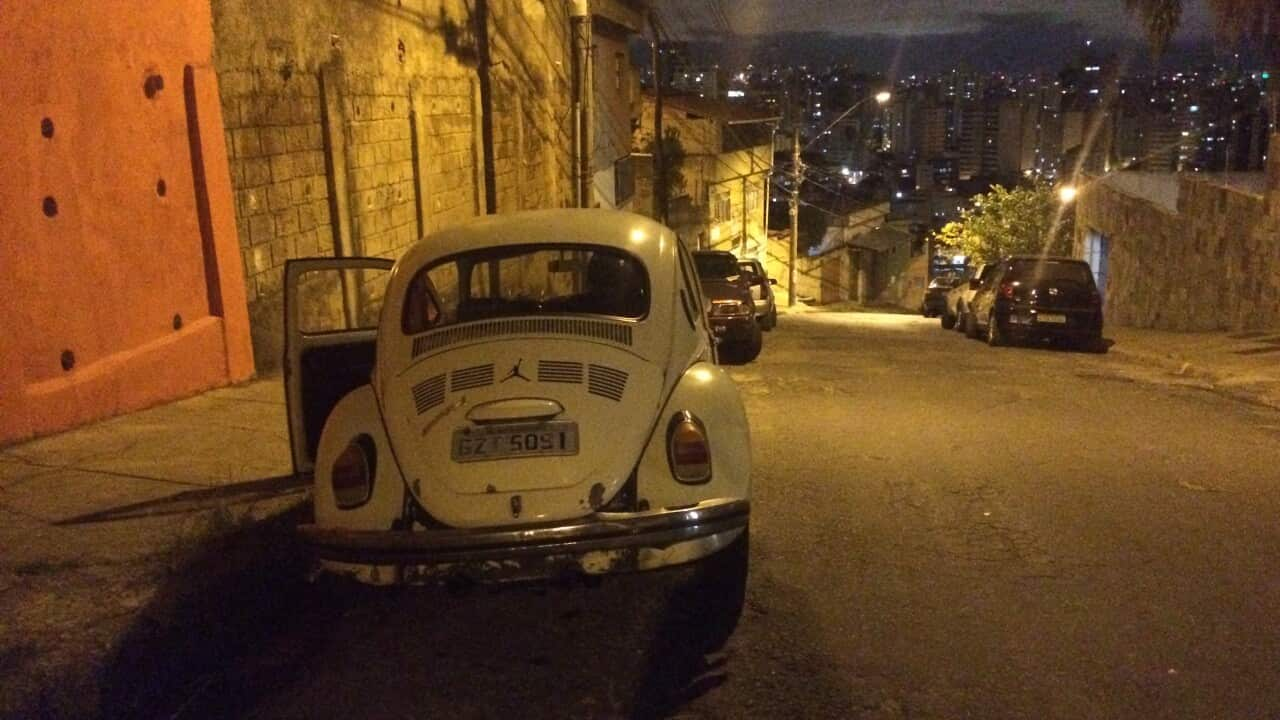"We were supposed to have English lessons at public schools, but they were mostly bad and often teachers weren't available."
Vanessa Rufino was born and raised in Rocinha, the largest favela in Brazil, situated in the South Zone of Rio de Janeiro, with a population of around 250,000 people.
Vanessa works on Ipanema beach, where she sells a variety of drinks and rents out beach chairs.
"Most of my clients speak English," she says, "so it’s really important for me to learn the language."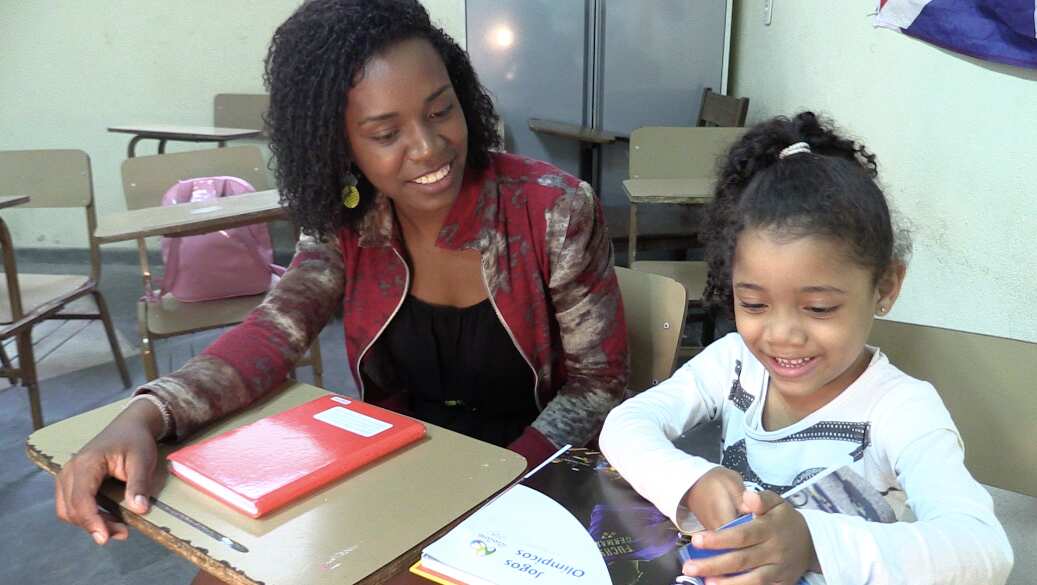 A large proportion of money generated in Rio is through tourism, and these days more and more companies expect a basic level of English comprehension for job applicants.
A large proportion of money generated in Rio is through tourism, and these days more and more companies expect a basic level of English comprehension for job applicants.

Vanessa Rufino and Ana Source: Elliot Constable, SBS
A few months ago, Vanessa heard about a language school that had been started up in Rocinha, free for the locals, and she jumped at the opportunity and enrolled her daughter too.
The school, Favela Phoenix, was started by Jody King, a British man who after working as a tour guide in Rocinha fell in love with the community and began a new life there.
"My life in England was going nowhere really, I got quite down, wasn’t very happy, and always wanted to live somewhere warm and exotic, so I chose Rio," he says.
The program began with 12 students, although word spread quickly about the school and Jody soon had to search for a bigger space. Eventually, a church in the middle of the favela offered up one of their buildings, which allowed the school to grow into what it is today, with around 120 adults and 50 children enrolled in the classes.
Fundraisers, donations, and 40 per cent of the money made on Jody’s favela tours goes into the project, which pays for a full-time teacher that takes care of the beginner and intermediate adult classes, access to online lesson plans and writing and reading materials. For the advanced adult classes and children’s classes, volunteers take the reigns.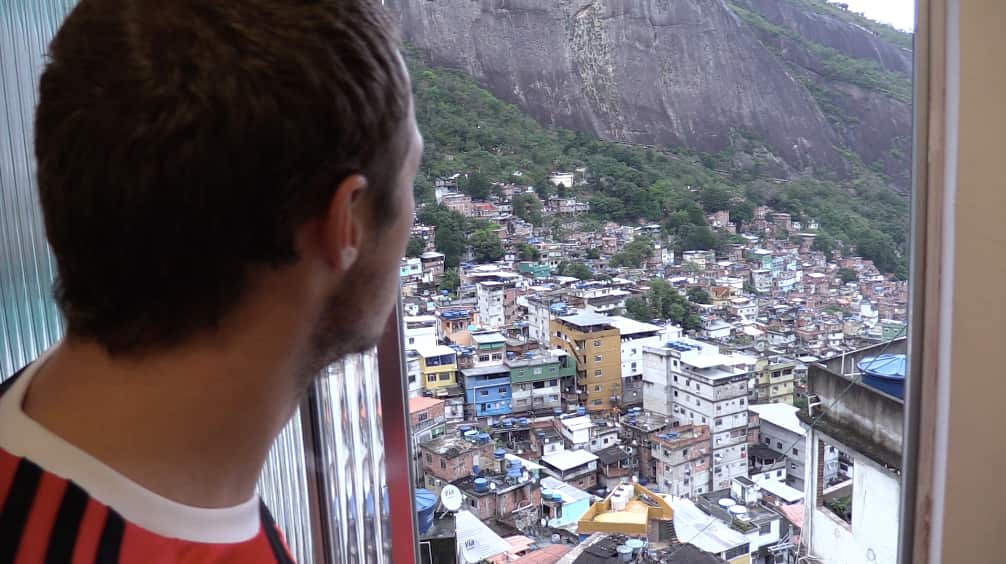 Alexi Kasia, a British volunteer, has been teaching English both paid and voluntarily for five years throughout Latin America and Spain. She has worked in schools, a nursery, even a prison and doesn’t plan on leaving Rocinha anytime soon. She has been taking the 4 to 7-year-old class for two months now.
Alexi Kasia, a British volunteer, has been teaching English both paid and voluntarily for five years throughout Latin America and Spain. She has worked in schools, a nursery, even a prison and doesn’t plan on leaving Rocinha anytime soon. She has been taking the 4 to 7-year-old class for two months now.

Favela Phoenix founder Jody King Source: Elliot Constable, SBS
"After school clubs are good for two reasons – the kids learn an important skill and they get to have fun, relax and be children," she says.
Mirla Rodrigues is local volunteer who has been with Favela Phoenix for four months. While she learnt a lot growing up inside Rocinha, at times life was testing.
"They say that we have the world knowledge and not so much the school knowledge, and that’s real, that’s true, because we are exposed to things that no one as a child would want," she says.
In the lead up to the 2014 World Cup and subsequent Summer Olympics, the Brazilian government attempted to reduce crime in the country by pacifying the favelas and placing 24/7 police units (UPP) inside gang-controlled territory.
Mirla recalls the day that the police entered into her community.
"They like to say that the state took back control of Rocinha, the biggest favela in Brazil," she says. "But how could that happen, in one day, a place long forgotten by the government, without a single shot from a gun?"
Mirla, along with many other locals from Rocinha, believes that the initial occupation of the favela by the police and the subsequent success story was nothing more than to satisfy international media outlets whose focus had turned to Brazil’s poorest areas - and people had started asking questions.
"Sure, people aren’t walking around the main streets with AK-47’s anymore, but there are still shootouts here that are not uncommon," she says. "There was one last Friday afternoon, although that one was small and only lasted for 10 minutes."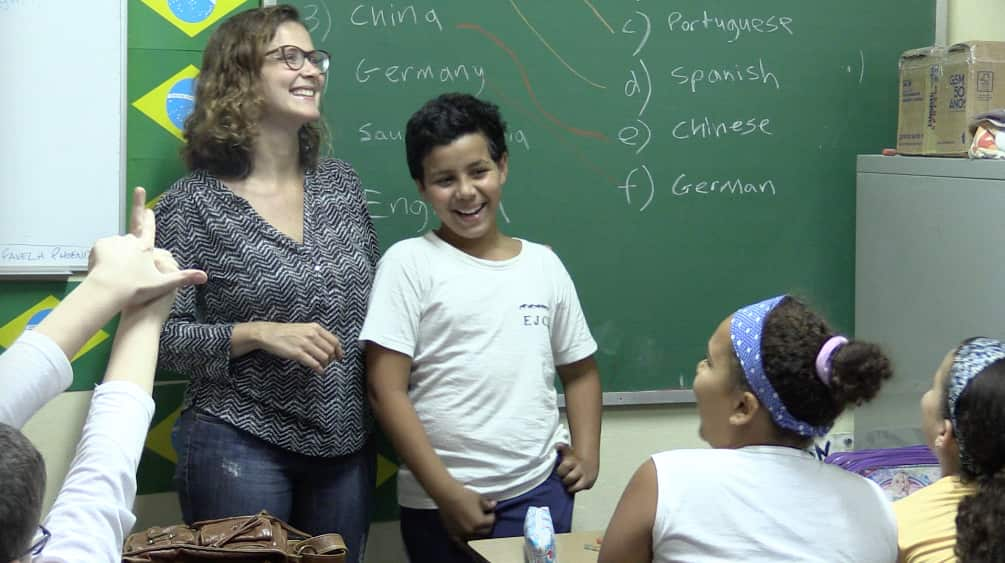 In March of this year, the state secretary for security announced a $2 billion Real (AU$822 million) cut to the security budget. The future of the UPP now that the Olympics have come and gone, remains in limbo.
In March of this year, the state secretary for security announced a $2 billion Real (AU$822 million) cut to the security budget. The future of the UPP now that the Olympics have come and gone, remains in limbo.

Mirla Rodrigues with a student Source: Elliot Constable, SBS
Though for Mirla and many other locals who live in the pacified favelas, having the UPP there doesn’t by any means guarantee safety.
"In general Rocinha is safe, but these shootouts and police operations can sometimes make it dangerous," she says. "You won’t be robbed here. There would be consequences. Before the UPP, there was the favela law. People aren’t necessarily safer now with a police presence."
The violent images accompanying police operations, the notorious stereotype of favelas and lack of positive international reporting didn’t do much for local businesses over the Olympic period. The fact that the Australian Olympic team and associates were banned from stepping foot inside the favelas was well known among the locals and was showcased across Brazilian television.
Jody, who has lived inside Rocinha for over two years, believes that favelas are extremely misunderstood.
"A lot of people think that the favelas in Rio are the dangerous places and the places to avoid and it’s really quite far from the truth actually," he says. "Of course there are thieves who live in favelas, but they are specifically told to go and rob tourists down in the wealthy areas. So it actually creates a pretty safe place to live here in the favela and a very nice community bubble."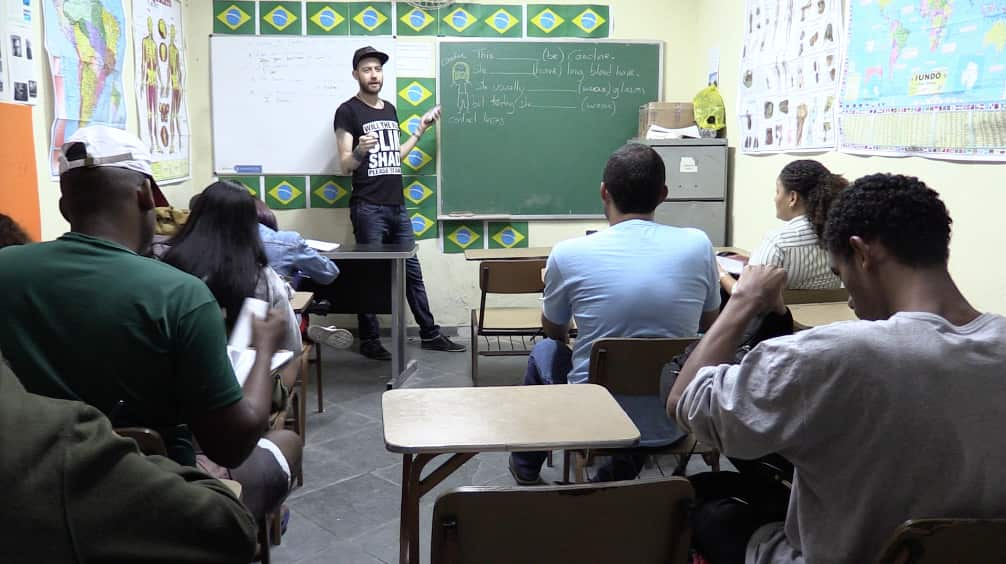 As Favela Phoenix continues to expand with new students signing up every other day, more international volunteers will be needed.
As Favela Phoenix continues to expand with new students signing up every other day, more international volunteers will be needed.

The adult English classes run by Favela Phoenix have attracted 120 students. Source: Elliot Constable, SBS
For local volunteers like Mirla, it is about helping her community grow and the misunderstood people within it succeed. Her parents both struggled while growing up, and one of their biggest lessons that they implemented into their children was that education is the most important thing that we can pass along to one another.
"There are a lot of good people here, and they are just missing opportunities," she says. "So that’s why I am here, if I can help them, why not?"



